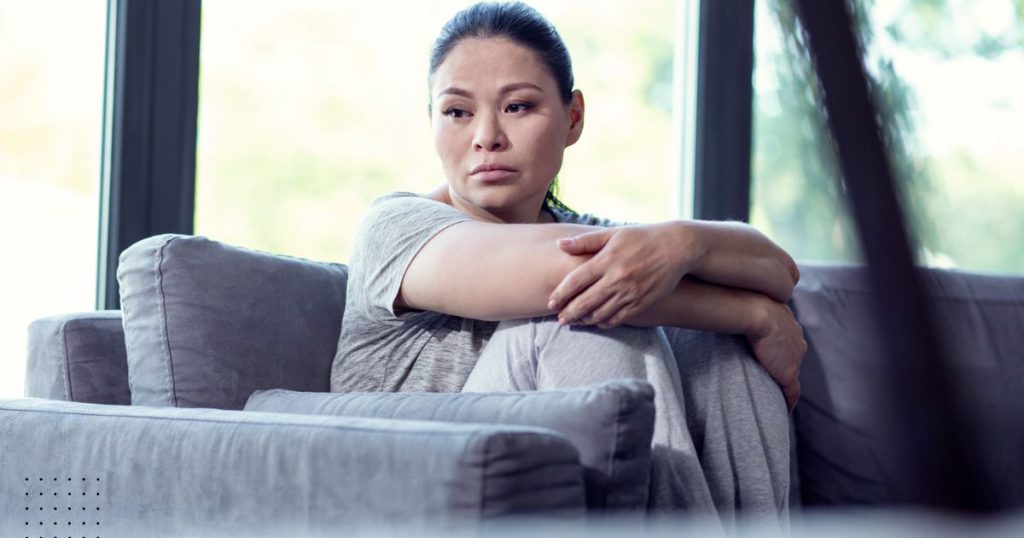
The Essential Secrets Aspiring Entrepreneur Must Know About Starting a Business
Dreaming of starting your own business? Read this article to get a realistic view of what it takes before diving in! Managing expectations is key!
Certified High-Performance coach, speaker, author, husband, adventurer, former commando-paratrooper, and tsunami survivor.
We all experience pain and suffering in our life. We can’t escape it. Thus if it is inevitable, how can we make sure to deal with it as fast and as smoothly as possible? In this article, you will learn how to not let pain define who you are and break free from suffering.
I was hanging on a tree, almost being swallowed by a deadly tsunami devastating everything on its way. Hundreds of people around me, including friends, were trying to not drawn or to escape from the collapsing buildings caused by the earthquake that hit us just a few minutes before…
I am not going to lie, it is painful memory. Yet, let me tell you how I turned a trauma into a super power.
I think if I would say right away that suffering is a choice, most people wouldn’t read any further. Well, I did…
Are you still there?
You might be feeling upset because if this statement is true, it means that you are responsible for your own state of being. In general, we rather blame others or the circumstances for the way we feel. It’s easier, and by doing so, we take ourselves out of the equation and embrace the status of the victim.
Ok, maybe you start feeling annoyed now. If that’s the case, I think it might be a good time to reflect on why those words are irritating you.
You might think, “that’s not fair to say that! This […] happened to me! It’s not my fault, I didn’t choose it!
I agree.
We cannot change an event. As well as control everything that is happening to us. But…
An event is neither good nor bad. It is the meaning we give to it that will change the way we feel.
We all go through difficult experiences in our lives, this is part of it and this is what makes us grow. However, we really quickly judge an event and try to label it as good or bad because it gives us a certain sense of control.
We want things to be “good” and when they are not, we feel hurt, disappointed, depressed.
This article addresses one of the key topics featured in the no-bullshit guide to creating success and fulfillment in life and business, where you’ll uncover the 3-part formula to design and live a more rewarding life. It may sound too good to be true, but it’s a system that actually works. If you haven’t read it yet, I highly recommend that you do so now to gain a better understanding of what it takes to reach excellence. Additionally, you can read the 4 steps to reach excellence and learn a methodology you can apply to any subject to speed up your progress.

Pain is an unpleasant sensation. It can be physical, emotional, or both.
Suffering is what we do with that pain.
Pain has a specific purpose, it is a signal from the body or the mind to tell us that something needs to be addressed.
However, suffering appears when we are focusing on how the pain makes us feel. The danger is to ignore the pain (the signal) and stay stuck in our experience of the pain. It is about how we experience the pain that will create sadness, anger, frustration, depression,…
It is possible to have pain without suffering, for instance, when people push the limits of their body in physical activity or even when you eat spicy food. In this case, you experience the pain but choose to not suffer because you enjoy the feeling. Suffering is a state of being, it is optional.
Pain is neither good nor bad. It is just a notification that something is not right. It is a signal carrying a message. In this stance, pain is inevitable and we should be grateful for it.
Without pain, we would not be able to adjust the way we live and we would die without warning. Or live unfulfilled and miserable without knowing what to change.
Spoiler alert! You experienced pain in the past and you will experience pain again in the future. You can’t avoid it. Nevertheless, suffering is a choice.
If pain is inevitable, the only thing we can do is learn how to not let ourselves dive deep into suffering. We were born knowing how to deal with pain but we forgot growing up.
Look at how a child is dealing with pain. Simplified, it looks like this:
1. Trigger
2. Pain
3. Full expression of the experience of the pain
4. Let go
The time frame for a kid to go through those four steps is pretty short. The main reason is that they live way much more in the NOW than adults. By living in the present, they acknowledge the pain and fully experience it. Then when the signal of the pain is fading away, they let go.

When we grow up, we tend to spend more and more time reviewing the past and rehearsing the future. When we experience pain, we enter into suffering because we don’t want to have the pain, we refuse to accept it and wish it never happened. Suffering is a really dark place to be, so we try to find ways to escape without dealing with the pain.
People commonly try to find relief in drugs, food, alcohol, work, sex,…Those are not effective. But I guess you know that already.
If your daughter would come to you explaining the struggles she is going through, I guess your first advice would not be to drink a few glasses of whiskey. Well, I hope…
Although it isn’t working, the illusion of relief is attractive. But the truth is that a temporary escape is not gonna help, it will just prolong the period of suffering. We can stop suffering when we actually observe the pain and understand that it is non-permanent. The sooner we let go, the faster we will stop the suffering.
Deciding to not suffer doesn’t mean there was no pain at the beginning. It doesn’t mean that the pain is ignored. It simply means that we decided to not let the pain we experienced in the past defines how we will feel in the future.
When you ask yourself “Why me?”, you dive into suffering and focus on what already happened. Altering your perspective takes practice and wisdom. It takes the ability to know that one day it will be fine. And decide to come to this day sooner than later. Because why wait?
It seems that there is a social script that says that the longer you are suffering the more important the pain must have been.
We tend to connect more easily with people via hardship than joy and because we are social beings we like to be acknowledged. Have you ever noticed how quickly we connect with someone suffering from a similar problem?
Sometimes I ask myself, am I suffering because I can’t deal with the pain or because I want the world to acknowledge my pain? Do I really believe that if more people know that I am in pain, I would be able to deal with it better? That is non-sense.
We see a lot of people playing the victim so they can get more attention and care. Sometimes even making the suffering bigger than the pain. Or simply thinking that if they don’t suffer enough, people will think that the pain wasn’t that bad after all.
Who the f#*^ cares? Seriously…
Choosing to play the victim is dangerous because you soon become your story, and let the pain define who you are. The more you make this situation familiar the more you are likely to stay stuck with it.
Now, don’t take me wrong, I do believe it is very important to have people we can count on to support us and listen to us. But there is a difference between sharing your pains and rambling about your suffering.
In 2018, I miraculously survived a tsunami and an earthquake. Believe me, it was a traumatic experience. It generated a lot of emotional pain, luckily just a little bit of physical pain. I was lucky, that could have been way much worse.

For weeks I was dealing with PTSD. The suffering was intense, I was in a very dark place. And although I was telling myself that everything is gonna be fine, at that moment, it felt like there was no way out.
One day I had an insight. For all the people and friends that lost their lives, I had the duty to make the most of mine, being lucky to still be alive.
I was a victim. I became a survivor.
Same event, different perspective. The pain didn’t change, but the suffering faded away.
The pain affected my mood. My mood was becoming my temper. My temper would have soon defined my identity. I could have let this brief impactful experience change completely who I am. I could have lived miserable my whole life, people would have asked why I am so bitter and the answer would have been; “well, 30 years ago he survived a double natural disaster.” No. Something that happened in an instant is not going to define my whole life.
To be really honest with you, there have been times when people said “that must have been so hard”, and after answering “yes it was, but it’s ok now”, I could hear their mind saying” oh well if he is already feeling good, that must not have been that dramatic”. Not sure if anyone thought that, but I did. To the point that I started doubting about telling that I was dealing with it pretty well.
Another example would be someone having his/her partner passing away and remarrying a year later. I’m sure people would dare to judge and think, “well, he moved on quite fast, that’s disrespectful”. Really? Do you have to suffer longer to prove that you are hurt? Is the longer you suffer an indication of the depth of your pain?
That’s ridiculous but sometimes it seems that there is an unspoken rule about it.
It is challenging to let go mostly because we don’t want to accept that this or that happened to us. We try to resist something that we can’t change. We wish it would be different but have no power over it. What happened, happened, there is no way to change the past.
The difficulty lies in our acceptance. The longer we will live in denial or wish for something different the longer we will suffer. In our reluctance to accept ‘what is’ we start to identify ourselves with our suffering. We hang on somehow hoping that things can suddenly change, refusing to let go and face the reality. If we do it long enough, the suffering becomes familiar, and it becomes who we are.
Once again, letting go of the suffering doesn’t mean that there was no pain.
Pain can be awakening. It can be used as a big motivator for change.
Let’s use an example:
Someone tells a chubby person that he should be careful with his health because being overweight is really detrimental to his quality of life.
The person is vexed. That hurts, nobody ever said that before. He doesn’t appreciate the comment = Pain.
Reaction A:
“Well, he is right, I’m a bit too fat, I wish I should eat better but I can’t, it is just who I am, I will be fat forever, it’s not really my fault, because this and that happened to me.”
Reaction B:
“Well, he is right, I got to do something NOW. It’s time to change, I don’t want to be fat. I want to be a fit and healthy person!”
Same situation, but in scenario A the comment will generate pain and lead to suffering. In scenario B, the pain will be turned into motivation, determination, and commitment. You can choose to be a victim of the pain or a survivor of the pain, and that makes the whole difference. You can turn the pain into learning and growth. That’s the reason we experience pain after all.

I really believe in order to deal with the events of life we need to accept life as it is. Life is just the way it is supposed to be: unpredictable, good, bad, ugly, great,… The moment you realize that life is happening for you not to you, your world switches!
Once upon a time, there was a farmer who had a son and owned a horse. They lived a peaceful life despite a lack of material possessions. One day, the horse jumped the fence and escaped into the hills.
The neighbors came to express their concern, “Oh, that’s too bad. How are you going to work the fields now? ” The farmer shrugged his shoulders and replied, “Good thing? Bad thing? Who knows?”
A few days later, his horse returned to the farm bringing with him another eight wild horses. The farmer took them all and built a taller fence so that the horses couldn’t escape. The neighbors again gathered around, “Oh, how lucky! We thought you were destitute, but look at you now, you can do much more work than ever before!” they said. The farmer shrugged his shoulders and replied, “Good thing? Bad thing? Who knows?”
The next day, the farmer’s son fell off one of the new horses and broke his leg. “Such misfortune,” said the neighbors. “Now that he is incapacitated, he can’t help you around. That’s too bad.” The farmer shrugged his shoulders and replied, “Good thing? Bad thing? Who knows?”
Soon, the news came that war had broken out, and all the young men were required to join the army. The villagers were sad because they knew that many of their sons would not come back. The farmer’s son could not be drafted because of his broken leg. So the neighbors gathered around again: “How lucky! You get to keep your only son!”
The farmer shrugged his shoulders and replied, “Good thing? Bad thing? Who knows?”
And the story goes on forever.
Slow down for a moment and reflect on how many times in your life has something “bad” happened that then turned into a blessing? I am sure you can think of a few examples.
– Why did you label those events “bad” in the first place?
– How did you experience the pain?
– What had to happen for you to change your perspective on the situation?
Now, when you look back, is it not true that the suffering was not really necessary?
Think of a situation today where you are suffering and ask yourself those same questions. I know it is challenging to see the whole picture and take distance right away.
What you can do is to keep in mind that you can only see the tree and not the forest and ask yourself what might be good in this? And if you can’t see the good thing in it yet, you can still start trusting life. “Sometimes beautiful gifts come wrapped in ugly paper”
The traumatic experience I had a few years ago changed my life for the better. It was extremely painful but made me grow. I still have nightmares, but I am wiser now. I suffered but it was also the trigger that helped me find my purpose.
The pain is still there but not the suffering, I live my (extraordinary) life to the fullest and support others to create their best life. I speak in public, inspire people and work with teams and individuals. I wish it never happened but in some ways, I am grateful for it.
This was a beautiful gift. Even though I received it wrapped in a very, very ugly paper.
There will be pain in your life. You can’t escape it. What’s important is how to deal with suffering. You can decide to be wounded or to become wiser. To be a victim or to become a survivor.
To live in a beautiful state, no matter what. You can choose to not let the pain control your life and define who you are.
Remember that pain is inevitable, but suffering is a choice. Quit being a victim, set powerful goals and new empowering habits! Some people will suffer for a week, some people will suffer for their whole life. Many will not realize that in the end happiness is a choice.
And you, what will you choose?
Ps: I highly recommend you to read the book: “Man’s search for Meaning” by Viktor Frankl.
Like this content? Be the first to get it delivered directly to your inbox every month (along with a lot of other great content). Yes, please send me the newsletter, exclusive information, and updates on self-mastery.

Dreaming of starting your own business? Read this article to get a realistic view of what it takes before diving in! Managing expectations is key!

Life is not a fairytale; the reality is that it can be unfair and brutal. Natural disasters, wars, accidents, inequalities, I mean, it’s tough out there! And in our quest to find happiness, we must learn to let go of what we can’t control. The problem is that we believe that things should be the way we want, and if it doesn’t, we think something is wrong, so…

A proven framework to reach your next level. Let me warn you; it is probably not the “easy, no effort, immediate effect” answer you were looking for, but something that actually works. If you’re still seeking the shortcut, keep looking; good luck and goodbye.

What would it be if I asked you to describe success in one word? Most of us would associate success with external achievements and material gains. In this blog, I offer a fresh perspective on what it means to be successful.
